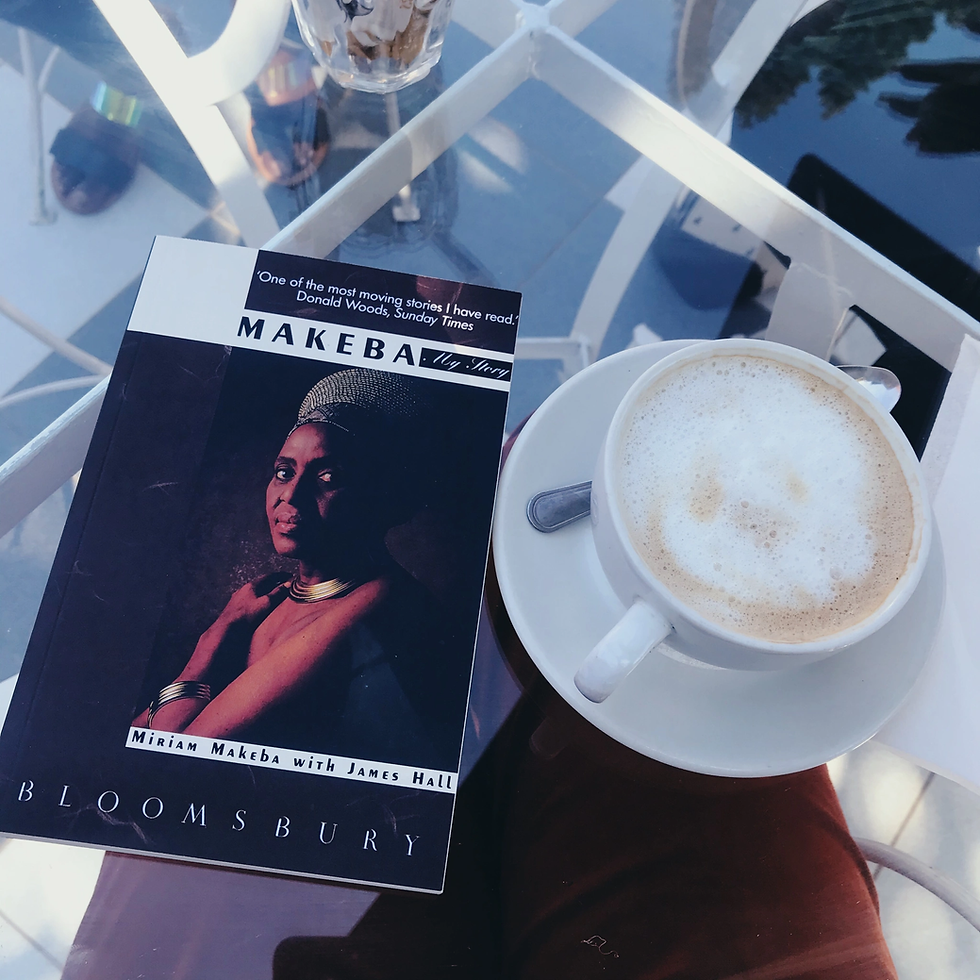‘The concert stage: This is one place where I am most at home, where there is no exile’
It is no surprise that this book has found itself on my May Nonfiction reading list. I grew up in a home where Miriam Makeba was played every other day, so I have known her music for a long time. However, I only started understanding and appreciating her music as an adult. So much has been written about Makeba, from being called the ‘click girl,’ ‘mama Africa’ to being exiled from South Africa even before she had started voicing her opinions about apartheid and dealing with the demands of fame. Yet there is an undeniable power in one telling their own story. Zenzile Miriam Makeba was born on the 4th of March 1932 in her mother’s house. Nomkomndelo Christina was taken to jail with Makeba when she was just six months old, a prelude to all the times she would spend in jails later in her life. Hope, determination and song, the three things Makeba said she would have until the day she died are the foundation of her story.
The nineteen chapters in this book are evidence of this hope, determination and song in her life. Two things that strike me about Makeba are her love and purpose. Makeba loved her mother and losing her shook her world, she loved her daughter Bongi and losing her only child sent her down a path that was disastrous. Makeba loved her family, forgiving her sister Mizpah who had an affair with her first husband and reuniting with her brother who she had not seen in over sixteen years reminded her that there was never a day that went by without a yearning to do right by her family. Makeba loved to sing and whenever she went on that stage she just set it on fire. The one thing that never let her down! She also treasured her friendships with different people who held a special part in her heart, Harry Belafonte, Nina Simone, Caiphus Semenya and Letta M’bulu. Oh the love that she had for Letta was beautiful to read, on page 93 she says, ‘I do what I always do: I ask for two autographs. One is for me, and one is for my friend in South Africa, Letta. I promised Letta I would do this. By now she has a nice collection.’ Letta and Caiphus got married in Makeba’s house in the USA. She loved South Africa and this love was visible in her hope, determination and song. The stand that she took against apartheid shows how much South Africa meant to her. She was brave to speak out and to take care of the South Africans who left home and found themselves in the USA. There was always a home for everyone in her house. Being exiled like many other things that stole from her hurt her a lot and also fueled her purpose.

Many people have always found interest in her relationships. Makeba is honest about her romantic relationships. She always gave love a chance no matter how chaotic or passionate, she was always ready! She was married five times. Her first husband was James Kubay ‘Goolie’ a man who was abusive and cheated on her, he was also the father of her only child which she had at seventeen. She left when he almost killed her. The second was Sonny Pillay, a man she had once loved back home and reconnected with in London. She called their marriage the most impulsive thing she had ever done. They divorced so she could chase her dream in the USA. The third is Hugh Masekela ‘Hughie’ a man she calls a great love. They divorced because of the age and fame difference. Miriam’s star shined brighter than Hugh’s which was only just emerging. She acknowledges their on and off relationship throughout their lives. The fourth is Stockley Carmichael, whom she had a long marriage with. Stockley cheated on her and she left him. The fifth is Bageot Bah and she was his second wife. They divorce at some point too. Here’s the thing, how did Makeba know that it would work? She didn’t! She had hope and she left every time when things did not work out… to try again.
I enjoyed reading this autobiography because firstly I like Miriam Makeba and secondly it gave me new insights into her life. Miriam battled with many things in her life such as being a star on the rise, being alone in Europe and the USA, losing family, being jailed several times, battling cancer, dealing with her daughter and exile. This book was written before she was finally allowed to go back to South Africa. Towards the end of the book she says, ‘But the funny thing is, I am finding courage just speaking of the past. I am sorting things out and it leaves me feeling clean. And as my inner house gets in order, it shows on the outside,’ (page 245). Miriam Makeba inspires me to have hope, to be determined and hold on to those things that make my life tick. For her, the song, the song always remained part of her. Even those things that appear to be far-fetched are within reach. They can be fetched. Makeba died in November 2008 in Italy.
Book Details
Title: Makeba: My story
Author: Miriam Makeba with James Hall
Genre: Autobiography
Pages: 256
Publisher: Bloomsbury Publishing Limited (1988)
Where to buy:
Other titles by author:
Commentaires